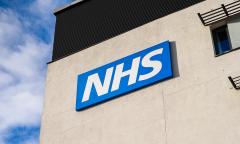Early access to specialist diagnosis and care
Our ‘Care and treatment: your rights and choices’ information explains your rights and choices with regard to your epilepsy care and treatment. ‘Rights’ are in the NHS Constitution and the Handbook to the NHS Constitution, and you are entitled to them by law. Where we say ‘you should’, you may not have a legal right, but these are recommendations made in the NICE (National Institute for Health and Care Excellence) guideline on epilepsy.
After a first seizure, or a seizure after a period of being seizure free, you should see a specialist within two weeks. You have a right to be treated by appropriately qualified and experienced staff.
“People presenting with a suspected first seizure should be referred urgently to ensure that a specialist is involved early in diagnosing epilepsy. Diagnosing epilepsy can be complex and involving a specialist can help avoid misdiagnosis and ensure that the person receives the right care and support.” NICE clinical guideline
“Refer children, young people and adults urgently (for an appointment within 2 weeks) for an assessment after a first suspected seizure.” NICE clinical guideline
“The staff who provide NHS services must be appropriately qualified and have the experience needed to do their jobs well.” Handbook to the NHS Constitution
You have the right to be treated by qualified and experienced NHS staff. Where epilepsy is suspected, adults should be referred to a clinician (a specialist) and children and young people should be referred to a paediatrician. Both should have expertise in assessing first seizures and diagnosing epilepsy.
You should be referred for any necessary diagnostic tests (such as an Electroencephalogram – EEG or Magnetic Resonance Imaging – MRI) which should be done within six weeks. There is no single test to diagnose epilepsy but an MRI or EEG can be a useful part of the diagnostic process.
If you have been seen after one seizure, you should be given an individual assessment of your risk of having another seizure. You should be given information about how to recognise another seizure, first aid and safety, how to minimise any risk, and what to do if another seizure happens.
The sooner epilepsy is diagnosed, the quicker you and your specialist can start making decisions about your treatment and management. Trying to get your seizures under control as soon as possible means that hopefully, you will have fewer, and they will have less impact on you physically and emotionally.
You should also have access to an epilepsy specialist nurse (ESN) who can provide you with information, education, and support.
For more about the NHS Constitution visit nhs.uk/NHSConstitution
For more about the Handbook to the NHS Constitution visit gov.uk/government/publications/supplements-to-the-nhs-constitution-for-england
For more about the NICE guideline visit nice.org.uk/guidance/ng217
Information updated: March 2023
Epilepsy care - your rights
Our 'Epilepsy care - your rights’ information explains your rights and choices with regard to your epilepsy care and treatment.
Epilepsy Care Pathway
A clear care pathway to show you what to do from the first seizure to referrals and reviews.
Sources for Epilepsy care - your rights
Sources used to develop Epilpesy care - your rights.



